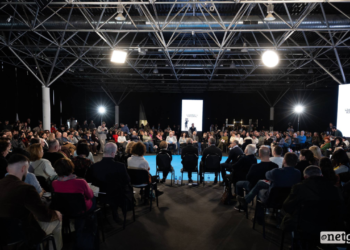Archimandrite Dorote Kurashvili, summoned to the Patriarchate’s Morality Commission over recent public statements, says any decision taken against him — including possible defrocking — will count as a victory, as he is “fighting the Russian regime” and those “seizing Georgia and the Georgian Church.”
Speaking ahead of the disciplinary hearing, Kurashvili claimed the process is politically motivated and directed by the founder of the ruling party, Bidzina Ivanishvili, and Russia.
“I am being judged by Bidzina Ivanishvili and Russia, because they could not find any ecclesiastical deviation in my words — anything a priest should not preach,” he said. “Whether they defrock me or not, both decisions will be a victory for me.”
Kurashvili accused church leadership of protecting pro-government clerics while punishing critical voices. He singled out Metropolitan Stepane, accusing him of spreading “heretical teaching” aligned with ruling-party politics and anti-European rhetoric.
He also asserted that Metropolitan Shio, the Patriarch’s locum tenens, is behind the move to discipline him:
“They hide it and do not mention Metropolitan Shio’s name, but he has been tasked with punishing me. Andria Jagmaidze has neither the right nor the ability to judge me.”
Kurashvili insists he will attend the hearing only if the media are present — a demand the Patriarchate has rejected as “unprecedented and unacceptable.”
The Patriarchate summoned Dorote Kurashvili after a series of televised interviews in which he sharply criticized the church hierarchy and the ruling Georgian Dream party.
The Church claims his statements include “disciplinary, moral and defamatory violations.”
Kurashvili did not appear at the first meeting and received a “strict warning.” He argues the disciplinary case reflects the growing political influence of the ruling party within Church structures and says he will use the hearing to question his accusers.
The case has sparked renewed debate about free expression inside the Georgian Orthodox Church — and allegations of political pressure on dissenting clergy.














